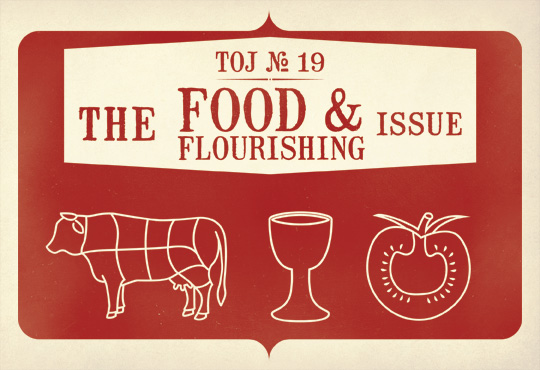When we come to the communion table, we participate in the literal and symbolic culmination of our worship and our lives as Christians. It is an occasion of remembrance and reflection and mystery that both brings us a foretaste of our future communion with God and brings us together as a people. It was at this table where kings and queens, otherwise separated from their people, would worship together as equals. And it is here that people of differing histories, cultures, and classes can still celebrate together “as often as [we] remember [him].”
The centrality of food to our worship speaks to its power to shape our lives. The sights and smells of food become the thing of memory, they become the taste of childhood or love or grief, and yet they also propel us forward to future faithfulness. As we gather, prepare, and consume food, we take the earth and its creatures into our daily routines and transform God’s bounty into sustenance, into the joys of pleasure and community.
Contrary to the idea that the table invites us to expectantly remember and celebrate creation, there is a growing cultural concern that we are abstracted from our food’s source and forgetful of its meaning. A swell of voices is building, from cultural food prophets like Wendell Berry and Michael Pollan to the comics of IFC’s Portlandia, calling renewed attention to the sources and production of our food and to how our current systems separate us from that which we eat.
Issue #19 of The Other Journal seeks to examine our complex relationships to food. We will address such questions as, what does our separation from, and connectivity to, food mean for us spiritually and socially? How do approaches to farming and eating contribute to robust communities and relationships? What can we learn about our faith by examining our Eucharistic practices?
Throughout the summer and early fall, we will publish articles, art exhibits, and creative writing that explores the theology and culture of food, including an interview with Norman Wirzba, an article on what Homeric metaphysics teaches us about the Eucharist, an examination of the Manhattan brunching scene, and much, much more.
